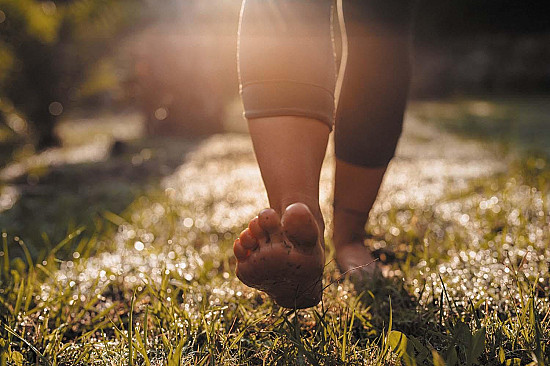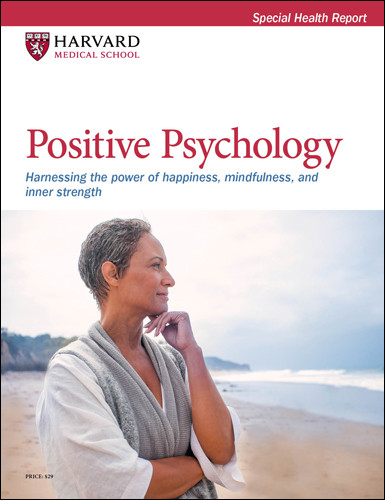5 heartfelt gift ideas for Valentine's Day
Treat your sweetheart, friend, family member, or yourself to a present that cultivates cardiovascular health.
- Reviewed by Christopher P. Cannon, MD, Editor in Chief, Harvard Heart Letter; Editorial Advisory Board Member, Harvard Health Publishing

On February 14 — a day symbolized by hearts and dedicated to love — give that special someone a present that shows you care. Or treat yourself to one (or more) of these five gift suggestions, all of which are designed to make it easier and more enjoyable to follow the cornerstones of a heart-healthy lifestyle: eating well, getting regular exercise, sleeping soundly, and managing stress.
Dr. Beth Frates, a lifestyle medicine coach and associate professor of medicine at Harvard Medical School, explains why and how these gifts encourage habits that benefit the heart.
1. A cooking class
Making home-cooked meals is one of the best things you can do for your cardiovascular health. Research suggests that people who eat more meals made at home tend to weigh less and have healthier cholesterol and blood sugar values compared with people who eat out frequently. "You can control the amount of saturated fat, salt, and sugar in food you make yourself. You'll also avoid the preservatives, additives, and dyes found in convenience foods like frozen dinners and other processed foods," says Dr. Frates.
For people who feel they don't have the time or skills to prepare healthy food, a cooking class can help. A great place to start is a single class or series of classes about Mediterranean cooking or a similar cuisine that highlights heart-healthy ingredients: vegetables, fruits, whole grains, healthy fats like extra-virgin olive oil or canola oil, and plant-based proteins like nuts, seeds, legumes, and tofu (or fish or chicken for those who choose animal proteins).
"Taking cooking classes together is a wonderful way to bond, to have some fun, and to nourish your body," says Dr. Frates. Once you hone your skills and grow more comfortable making meals, cooking can also be a great way to express your creativity, she adds. Some restaurants, supermarkets, and cookware stores offer on-site cooking classes. Alternatively, you can check local community centers and colleges, or search online.
2. Strawberries dipped in dark chocolate
Both strawberries and dark chocolate contain beneficial plant compounds called flavonoids, which are thought to improve cardiovascular health by relaxing blood vessels, improving blood sugar and cholesterol levels, and discouraging blood clots. Studies have linked diets rich in flavonoids to a lower risk of heart attacks and related problems.
"Chocolate-dipped strawberries are a classic Valentine's Day gift, and they're also delectable," says Dr. Frates. Look for those made with dark chocolate, which tends to have a higher flavonoid content than milk chocolate. Better yet, buy your own high-quality dark chocolate and berries and make them yourself — or maybe even together with your valentine, she suggests.
3. Custom-fit sneakers
If people walk, jog, or hike in shoes that don't fit properly, they can run into problems, says Dr. Frates. For example, ill-fitting shoes can cause blisters, put pressure on bunions, or leave you vulnerable to plantar fasciitis (inflammation of the fibrous band of tissue on the bottom of the foot) and Achilles tendinitis (inflammation of the tendon connecting the calf muscle to the heel). Some experts recommend replacing your walking shoes at least every 300 to 500 miles, which translates to a new pair every six to 12 months if you regularly walk about three miles per day.
Treat your valentine to an outing to your local specialty running store, where you'll find the best selection and expert advice about footwear options. Many running stores sell walking shoes, and you can even wear running shoes for walking. Outdoor equipment stores may be your best bet for hiking boots. It's well worth the investment of time (and the possibly higher price tag) to have a knowledgeable staff member help you select a well-fitting shoe to suit your needs. Be sure to try on several different brands and styles, and take them for a test walk or jog around the store.
4. Luxury sleep products
Getting at least seven hours of sleep each night is vital for cardiovascular health, says Dr. Frates. Insufficient sleep can raise your risk for weight gain, diabetes, high blood pressure, and heart disease. Creating a sleep sanctuary that's quiet, dark, and comfortable can make it easier to fall and stay asleep.
A variety of accessories and products may help improve slumber. But it's important to know the preferences of your intended recipient, so ask questions or drop hints to gather clues. Some people might like a sleep machine that provides white noise or a recording of soothing sounds, such as falling rain, croaking frogs, or chirping crickets. Other might appreciate luxurious high-thread-count sheets, a silk pillowcase, or lavender-scented bath salts for a pre-slumber soak.
If outside lights or early morning sunlight curtails sleep time, consider light-blocking curtains or shades. An eye mask made of soft, breathable material (such as cotton or silk) is another option.
5. A subscription to a meditation app
Meditation and mindfulness have been shown to lower blood pressure, decrease levels of the stress hormone cortisol, and increase heart rate variability (microsecond time differences from one heartbeat to the next), all of which are linked to better heart health. "A regular meditation practice can help you to better manage stress, which is an unavoidable part of life," says Dr. Frates. Because meditation doesn't come naturally to most people, guidance and coaching from an in-person or online class really helps. A more convenient option is a subscription to a meditation app that you can listen to on your smartphone at your leisure.
Popular meditation apps include Headspace, Calm, Insight Timer, and Happier. Most offer a free trial period, so you could send sign-up links to a few that you think your valentine might enjoy, and then offer to treat them to a yearlong subscription.
Image: © Ariel Skelley/Getty Images
About the Author

Julie Corliss, Executive Editor, Harvard Heart Letter
About the Reviewer

Christopher P. Cannon, MD, Editor in Chief, Harvard Heart Letter; Editorial Advisory Board Member, Harvard Health Publishing
Disclaimer:
As a service to our readers, Harvard Health Publishing provides access to our library of archived content. Please note the date of last review or update on all articles.
No content on this site, regardless of date, should ever be used as a substitute for direct medical advice from your doctor or other qualified clinician.
















